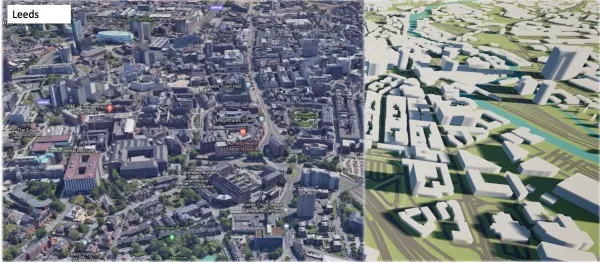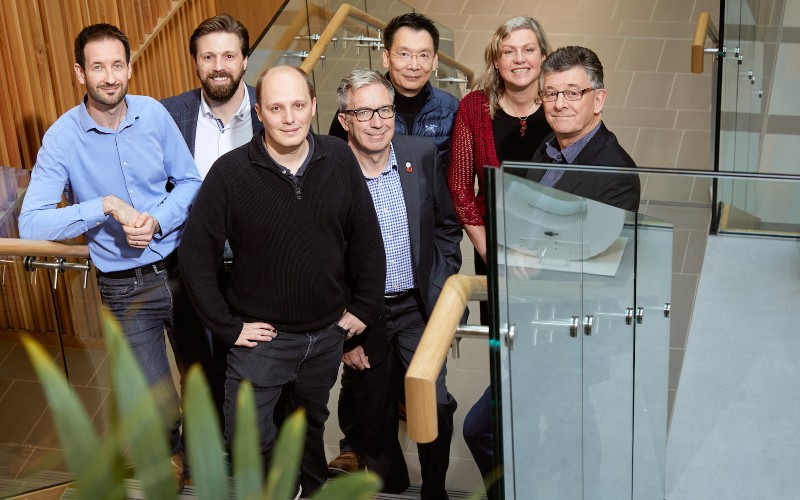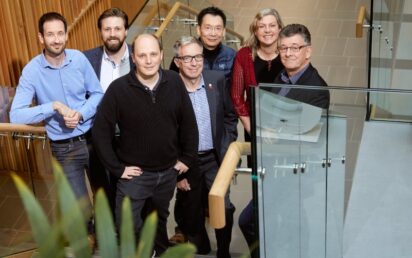A government-backed project announced by the Cabinet Office will make Yorkshire and Humber a global pioneer in the field of smart cities.
The project, led by Slingshot Simulations and one of the largest of its type in the world, will use the Leeds-based start-up’s ‘digital twin’ technology to improve the transport network in Leeds, York and Hull.
Slingshot’s platform will auto-generate 3D models of the three cities and surrounding areas, allowing planners to test different ways to boost the capacity of the existing network, reduce congestion and air pollution. They will also investigate ways to improve logistics and deal with potential delays at the port of Hull – a particular concern in the wake of Brexit.
The Yorkshire Geospatial Twin partnership, as it is known, brings together Slingshot with the three city councils along with Arup and BT Group, and will funded by Innovate UK and the Geospatial Commission. The project starts with immediate effect and lasts for 12 weeks. If successful, the technology could be adopted worldwide.
Slingshot Simulations was founded in 2019 as a spin-out from the University of Leeds and has been funded to date by the university and NPIF – Mercia Equity Finance, which is managed by Mercia and is part of the Northern Powerhouse Investment Fund.
It aims to make ‘digital twin’ technology accessible to businesses of all sizes, enabling them to use advanced computer simulations to test new ideas and make better decisions.
Dr David McKee, CEO at Slingshot Simulations, says: “This project is the natural next step in Slingshot’s journey towards making digital twins accessible to anyone anywhere.”
This ambition is supported by the Royal Academy of Engineering, Ana Avaliani, its Director of Enterprise and Sustainable Development, says: “Digital twins have the potential to be a powerful tool for environmentally sustainable economic recovery and growth and we are delighted to supporting David and his team in their entrepreneurial endeavours.”

Stephen Blackburn, Data and Innovation Manager at Leeds City Council, adds: “Digital twins are an important part of Leeds’s open data strategy. Linking and visualising multiple data sources from across the city can provide invaluable insight and lead to improved outcomes for our citizens.”
Dan Isaacs, CTO at the International Digital Twin Consortium, the global industry body, said: “This project will be one of the world’s largest digital twin projects ever seen with the potential to transform how cities and countries make decisions further substantiating how digital twins are a key enabler of digital transformation.”
The digital twin partnership is supported by Arup’s expertise in city modelling and transportation planning with mobility data provided by BT.
“Our Active Intelligence team will be providing aggregated and anonymised data to Slingshot’s digital twin to enable unique mobility insights”, says Nathan Watt, Senior Business Development Manager at BT Group.
Neil Hooton, Associate Director at Arup, said: “Digital twins and simulations are more than just buzzwords, they are vital in helping us visualise data allowing us to build faster, safer, greener and better spaces for everyone.
“We look forward to collaborating with Slingshot Simulations on this innovative project where we will harness the depth of our engineering and cities expertise to help validate these auto-generated 3D models of Yorkshire cities.”
Smart cities

